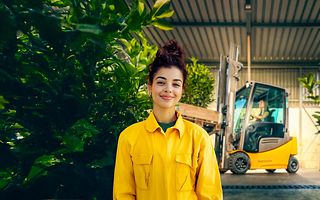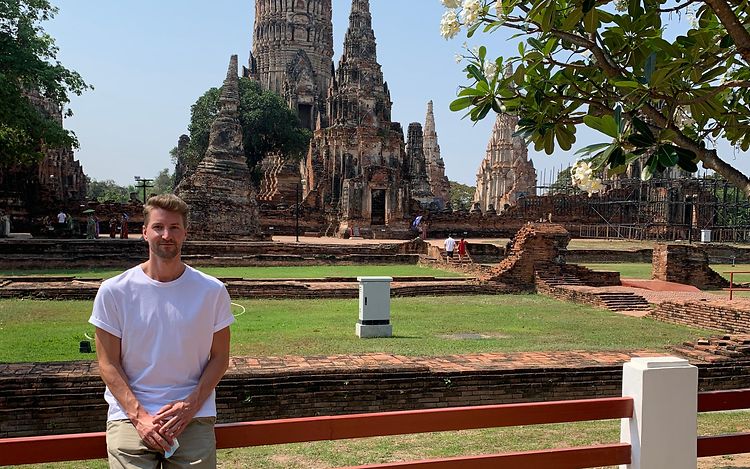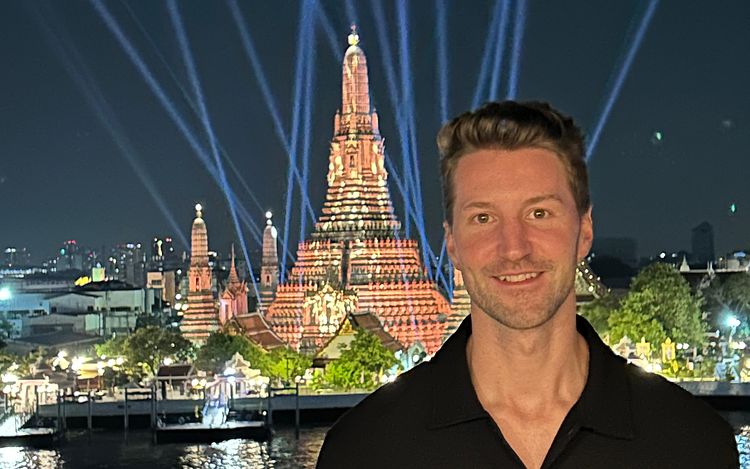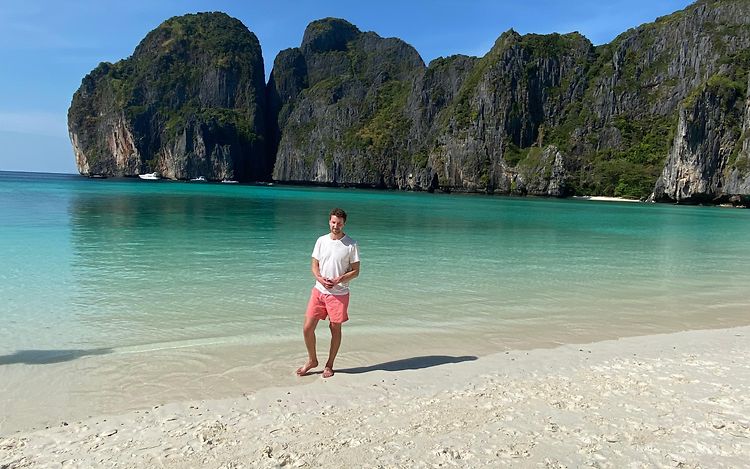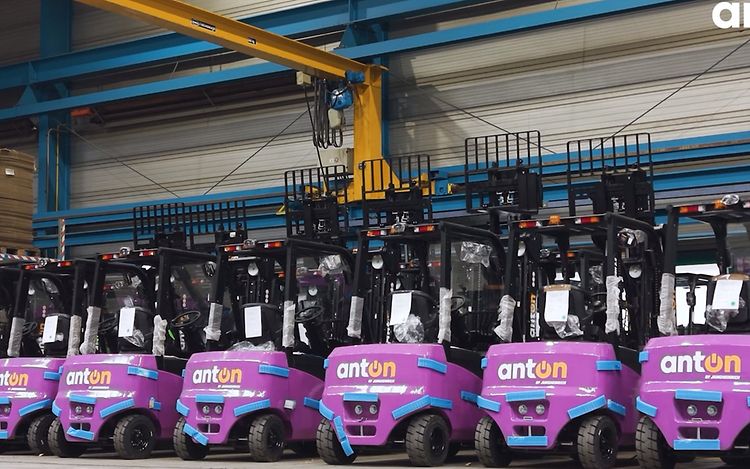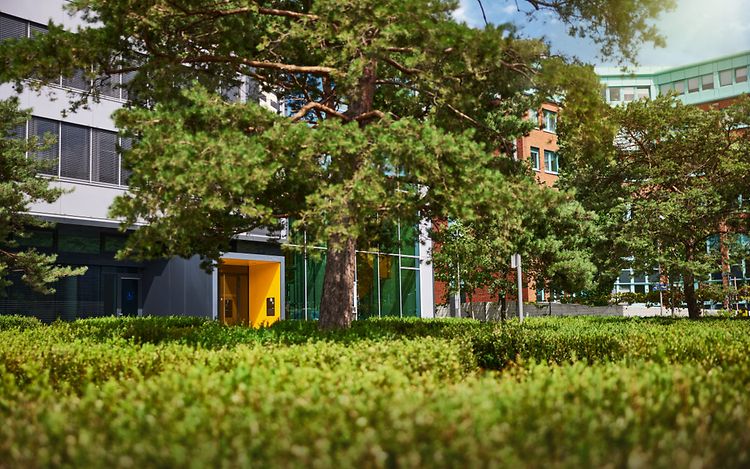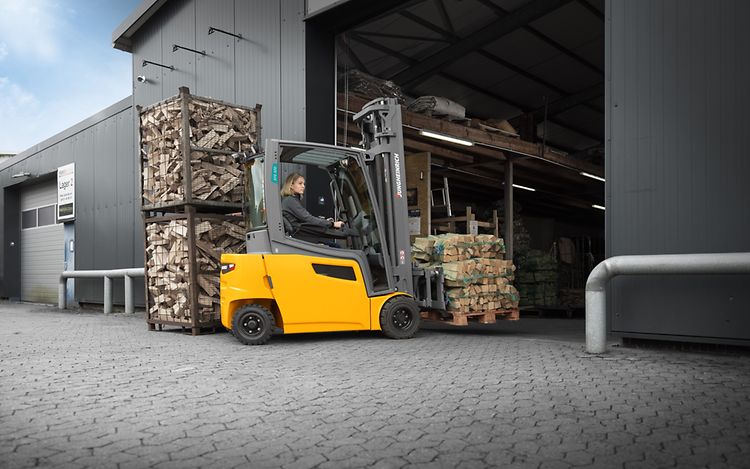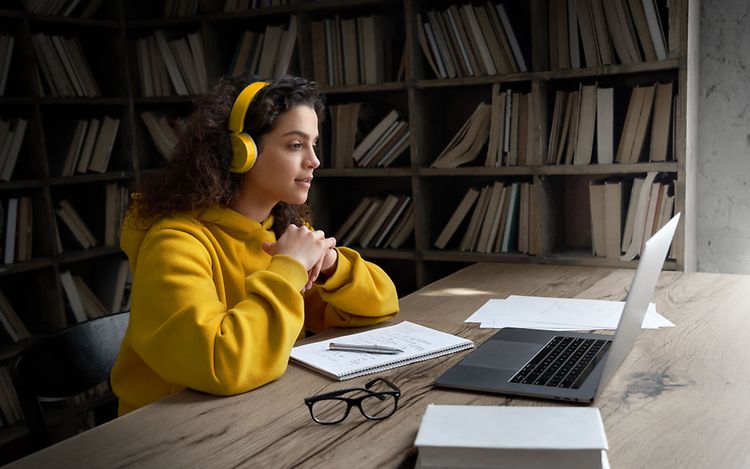 I am Timo, born and raised in northern Germany, near Oldenburg. My path was relatively classic: A-levels, commercial training, a degree in industrial engineering at university and then a part-time degree in business informatics.
I am Timo, born and raised in northern Germany, near Oldenburg. My path was relatively classic: A-levels, commercial training, a degree in industrial engineering at university and then a part-time degree in business informatics.
Even during my studies, I used the semester breaks to travel - especially to Asia. My semester abroad in Bangkok was my first intensive contact with the region, and even then I knew that I wanted to live and work here for a longer period of time.
After my studies, I started in Sales Management at Jungheinrich's headquarters in Hamburg. I worked there for three and a half years before I was given the opportunity to go to Asia as an expat. The move abroad was a conscious decision for me. My wife and I were flexible, unattached and the opportunity to work and live in a new environment was simply too tempting. Our original plan was to stay for two years - now it's three years and there's no end in sight.
The path abroad - well organised and yet challenging
The entire process from the first meeting to the final move took around seven to eight months. The support provided by Jungheinrich's Global Mobility Team was essential. Issues such as visas, insurance, intercultural training, finding accommodation and bureaucracy were all dealt with in the best possible way. Nevertheless, it was important to allow enough time for personal preparation - after all, moving abroad is not an everyday decision.
Once I arrived in Thailand, I received further support from the company. A local contact person helped with all the important steps, whether it was opening a bank account, obtaining a driving licence or finding accommodation. Even though many things are quite straightforward in Thailand, this support was worth its weight in gold, as it relieved me of a lot of administrative work.
My new working day - flexibility is the be-all and end-all
My role in Asia is varied. I work in the regional APAC headquarters at the location in Thailand and am therefore often travelling throughout the entire APAC region. I am responsible for optimising the process organisation, especially the sales processes, tools and supply chain management, and adapting them to regional conditions. I am the interface between the sales units in APAC and the head office in Germany. This requires a lot of flexibility due to different time zones and geographically dispersed teams.
The way we work here is more dynamic than in Germany. Projects are implemented faster and decisions have to be made quickly. While planning and preparation often takes a long time in Germany, the principle in Asia is more: ‘Do, test, adapt.’ This mentality was a change for me, but I now see it as a great strength of the region.
Cultural challenges and lessons learnt
One of the biggest challenges was adapting to the different working cultures. There are strong hierarchies in Asia, decision-making processes are different and communication is often more indirect than in Germany. In addition, the differences between the countries are enormous: while a rather harmonious working style prevails in Thailand, the dynamics in India or China are completely different. A lot of sensitivity and listening were required here in order to successfully contribute.
Another thing I learnt: as an expat, you have to be a generalist. At the company headquarters in Germany, there is a specialist for every task, but here in Asia you are often responsible for many different topics at the same time and your area of responsibility is regularly expanded. This versatility has broadened my perspective and taught me new skills.
Professional and personal development in Asia
 My time in Asia has helped me enormously both professionally and personally. I learnt to be more flexible, to adapt more quickly to change and to work successfully with a wide variety of people and cultures. My view of the world has also changed - I now see many things from a more global perspective.
My time in Asia has helped me enormously both professionally and personally. I learnt to be more flexible, to adapt more quickly to change and to work successfully with a wide variety of people and cultures. My view of the world has also changed - I now see many things from a more global perspective.
My tip for anyone considering going abroad as an expat: Be open to new things, don't be afraid of challenges and take every opportunity to develop yourself. It's worth it! And who knows - maybe two planned years will turn into a much longer trip, as it did for me.
Opportunities and challenges in an international working environment
Professionally, it was an incredibly valuable experience for me to work in such a volatile market. I look after seven countries that are experiencing completely different economic developments - some are growing by 20 to 25 per cent a year, while others are stagnating. This constantly presents us with strategic challenges: How do we deal with this? What measures can we take? Competition with Chinese manufacturers in the field of material handling equipment is also particularly exciting. They are increasingly pushing into the European market and it is challenging to position ourselves strategically here.
Quality of life and cultural experiences in Thailand
In addition to all these professional learnings, I also learnt a lot in my private life - above all, serenity. In Thailand, they say ‘Mai pen rai’, which means ‘No problem’ or ‘Everything will work out’. I have adopted this more relaxed mindset. In Germany, everything is often organised, whereas here everything is more spontaneous. It's good to be inspired by this to a certain extent and not always see everything too tensely.
But even outside of my career, it's a highlight to be able to say: ‘I've emigrated and built a new life with my wife.’ We have not only gained a foothold here professionally, but also a strong network of friends - both among Thais and other expats. We feel integrated and comfortable, so we can definitely imagine staying here longer.
Career successes and personal highlights as an expat
 Will Thailand become a permanent home for us? Who knows. But what I can say for sure: The decision to move here was definitely not a bad one. I never had the feeling that I would only stay for two years and then absolutely have to go back to Germany.
Will Thailand become a permanent home for us? Who knows. But what I can say for sure: The decision to move here was definitely not a bad one. I never had the feeling that I would only stay for two years and then absolutely have to go back to Germany.
Of course, there are also challenges - the language, for example. I speak a bit of Thai and can now understand some things, but I can't read or write. My wife is already one step ahead. However, almost everything in my professional life is done in English, so Thai is not an absolute necessity.
Our life in Bangkok is very comfortable. We live in one of the typical large apartment complexes with 50 floors. The alternative would be so-called townhouses, small townhouses in housing estates. But we deliberately opted for the convenience of flat living - with a gym, pool, parcel delivery service and parking spaces directly in the building. The flat itself is fully furnished and has the standard of a normal German flat. The biggest difference? The view from the 40th floor and the daily sunset that we can enjoy.
Our eating behaviour has also changed a lot. While I loved cooking in Germany, we hardly use our kitchen here. Life in Thailand takes place outside - and that's especially true for food. There are countless small street food stalls right on our doorstep where you can get delicious dishes for very little money. It's hardly worth shopping, cooking and then washing up. Instead, we prefer to eat out or order in. Bangkok is a loud, vibrant city full of life - and that's exactly what we love about it.

